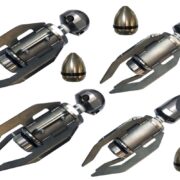According to statistics, overall energy consumption in the United States has gone down in past decades. Information published by the Energy Information Administration revealed that the average U.S. household consumed only 77 million British thermal units in 2015. This is 17 million British thermal units fewer than the average consumption in 2001.
However, the country still has a long way to go before it reduces its overall energy consumption to optimal levels. The residential sector is responsible for approximately 21 percent of the total energy consumption of the United States. A significant reduction of energy consumption in this sector can help the environment for the foreseeable future. Aside from helping the planet, making your home energy efficient can increase its sales appeal.
Here are 9 ways you can improve the energy efficiency of your home and decrease your property’s energy consumption.
Table of Contents
General Advice
The average home has multiple channels through which it consumes electricity. Appliances, devices and the wiring itself can all be using more energy than necessary.
- One of the first things toget is an energy audit from a licensed and professional electrician. An energy audit involved checking the energy efficiency of all your major appliances such as the washer and dry as well as the refrigerator. It will also involve assessing the condition of your property’s wiring, as this can affect the safety and efficiency of your electrical components. This audit can reveal what you can improve and which areas you should replace entirely.
- Your appliances and electronic devices could be consuming energy even when they’re turned off if you leave them plugged into a socket. This is referred to as standby power. Although this has been phased out of some devices, its still present in a lot of other appliances. You can reduce your utility bill by unplugging your devices.
- Even if you unplug your appliances, it won’t matter if they already consume too much energy when they’re plugged in. When you’re looking for new appliances or replacing old ones, only consider appliances that have the ENERGY STAR sticker. This means that the product has been assessed as energy efficient by the government.
Space Heating
Experts estimate that space heating accounts for approximately 43 percent of the total energy consumption of the average American home. As a temperate country, this isn’t a surprise, given how cold winters can get throughout the nation. However, there are ways you can use less energy and save more money on space heating.
- If your home retains heat more efficiently, it will stay warmer for much longer and use up less energy to do so. Hire a contractor and check how you can improve your property’s insulation. Perhaps they need to patch up the attic, put in new material in the walls or seal cracks. This will prevent hot air from leaching out of your home and heating no one.
- On the other hand, your heating system can be costing you money, especially if you leave it on even when you’re not at home. If you’re leaving the house for a prolonged period, shut off your thermostat. Or better yet, but a smart thermostat that will automatically do so.
Water and Plumbing
Your plumbing and water systems may also have an effect in your home’s energy efficiency. Pay attention to your plumbing and you may save a lot of money and energy.
- A water heating tank consumes a lot of energy keeping the water stored inside hot. Despite this, it’s prone to running out of heated water, especially in homes with multiple people. A tankless water heater eschews that tank and heats the water as it flows through the pipe, using energy only on demand. It will also always have hot water for you while reducing your utility bill and environmental impact.
- Washing machines can consume more electricity that necessary because they may use hot water for their wash cycles. This may not be strictly necessary for your laundry unless there’s a large stain or the fabric is delicate. Use laundry detergents that are activated by cold water and you could reduce the energy consumed by your washing machine.
Lighting
Depending on your home, you may have dozens of light bulbs and lighting apparatus around your property. Ensuring they’re all energy efficient can mean a great reduction on your consumption.
- Incandescent light bulbs may have a cheery, warm glow. But they’re not terribly efficient and consume more energy than other types of bulbs. If you want to have the buttery light of an incandescent bulb, an energy efficient alternative are colored LED lights.
- The best way to reduce energy consumption through lights is by using as much natural light as you can. Throw open your windows and install privacy shutters that will let in the sunlight while discouraging nosy neighbors. Trim vegetation around windows to let in more light. Remove furniture that blocks other apertures to brighten up the place. Not only will you reduce your usage of electric lighting, you’ll also spruce up your home.
Energy efficiency is not just helpful to the environment. It also reduces your cost of living and could make your home more attractive to environmentally conscious buyers. Whether you wish to make your home energy efficient because of practical matters or concern for the environment, these tips can help you get started the right way.













Comments